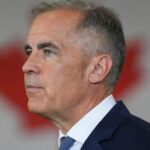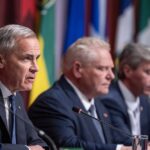In a landmark move that acknowledges the growing crisis of dementia in Indigenous communities, the federal government has unveiled a $24 million investment aimed at transforming culturally appropriate dementia care across Canada. The announcement comes amid mounting evidence that Indigenous populations face disproportionately higher rates of dementia and significantly greater barriers to diagnosis and treatment.
The funding, announced yesterday during a ceremony in Sudbury, will establish Canada’s first comprehensive Indigenous-led dementia care network spanning rural, remote, and urban Indigenous communities. Health Minister Mark Holland emphasized that this initiative represents more than just financial support—it marks a fundamental shift toward Indigenous-led healthcare solutions.
“This is about recognizing that healing comes from within communities themselves,” Holland stated during the announcement. “For too long, we’ve imposed Western medical frameworks that don’t adequately address the unique cultural and spiritual dimensions of Indigenous health and wellness.”
Recent studies published in the Canadian Journal of Public Health reveal troubling statistics: Indigenous adults develop dementia almost a decade earlier than non-Indigenous Canadians, with rates up to 34% higher in some communities. Perhaps more concerning, experts believe these figures likely underestimate the true scope of the crisis due to significant underdiagnosis.
Dr. Jennifer Walker, Canada Research Chair in Indigenous Health at Laurentian University and a key architect of the new initiative, points to systemic barriers that have perpetuated this health inequity.
“Indigenous elders experiencing cognitive changes often avoid mainstream healthcare settings due to historical trauma and ongoing experiences of discrimination,” Walker explained. “When healthcare lacks cultural safety and appropriate language services, many suffer in silence until crisis points are reached.”
The newly funded network will operate through a “hub and spoke” model with seven regional centers across Canada coordinating with local Indigenous health authorities. Each hub will develop customized approaches reflecting the distinct needs and traditions of First Nations, Métis, and Inuit communities in their regions.
Core components of the initiative include training Indigenous healthcare workers in culturally responsive dementia assessment, creating multilingual resources in Indigenous languages, and developing land-based memory care programs that incorporate traditional healing practices alongside contemporary medical approaches.
In Northern Ontario, the Anishinaabe Dementia Care Network has already piloted several innovative approaches that will now expand nationally. Their “Memory Keepers” program pairs elders experiencing memory loss with younger community members for cultural knowledge transmission through storytelling, traditional food preparation, and medicines gathering—activities that simultaneously preserve cultural knowledge while providing cognitive stimulation therapy.
Financial analysts following Canadian healthcare policy note that the investment represents one of the most significant targeted Indigenous health initiatives in recent years, though some advocates argue it merely begins to address decades of underfunding.
Chief Alvin Fiddler of Nishnawbe Aski Nation praised the investment while emphasizing the need for sustainable commitment. “This funding acknowledges the expertise that exists within our communities,” Fiddler said. “But addressing the root causes of dementia—including food insecurity, inadequate housing, and intergenerational trauma—requires long-term partnerships beyond this initial investment.”
The initiative comes amid growing recognition in global health circles that dementia represents one of the most significant public health challenges of the coming decades. With worldwide cases expected to triple by 2050, Indigenous communities globally are developing innovative care models that integrate traditional knowledge with contemporary approaches.
Implementation will begin next month with community consultations across all provinces and territories. The first regional hubs are expected to be operational by early 2025, with comprehensive national coverage anticipated within three years.
As Canada navigates the complex intersection of reconciliation and healthcare reform, this initiative raises an essential question: Could Indigenous-led approaches to dementia care ultimately transform how we understand and address cognitive health for all Canadians?

























